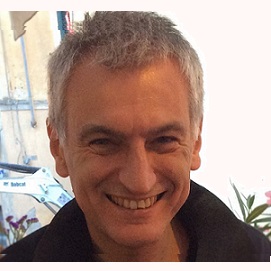Francesco Vetta is currently working as director of the Center for Arrhythmology and Electrophysiology of Paideia Hospital in Rome. Prof. Vetta has graduated in Medicine and Surgery with honors, in 1991, at the University of Studies of Rome "La Sapienza". Subsequently, at the same University, he obtained a specialization in Geriatrics, and in 2004, he specialized in Cardiology at the University of Rome "Tor Vergata". During his professional training he also attended a II level Master's in "Electrophysiology and cardiac electrostimulation", at the Catholic University of Rome, a 1st level Master in "Cardiology for images", at the University of Rome " La Sapienza", and a specialization course in "Arterial hypertension" at the University of Pisa.
Since 2013 he has been Director of the Cardiology Unit at the Israelite Hospital in Rome, where he also directs the Center for Arrhythmology, Electrophysiology and Cardiac Electrostimulation. It deals in fact with clinical cardiology, arrhythmology and cardiac electrostimulation, having carried out as first operator about 5000 PMK implants, including biventricular and over 600 defibrillators. Previously he was Deputy Chief of the Cardiology Unit of the "SS Gonfalone di Monterotondo" Hospital where he was initially Head of the Center for the study and therapy of arterial hypertension, then Responsible for the study of Sincope and finally Head of UOS of Arrhythmology and cardiac electrostimulation.
Prof. Francesco Vetta has focused in particular on studies concerning cardiovascular and arrhythmological diseases, especially in geriatric age, with participation in numerous national and international courses and conferences, which has allowed a scientific production quantifiable in about 160 publications in national and international journals, as well as chapters of scientific books and guidelines. He has participated as a speaker at numerous national and international congresses. President of the National Congress of Cardiogeriatry held annually since 2003.
- Recurrent syncope in elderly patients and tilt test table outcome: The role of comorbidities.
- Poster Session 1: Atrial fibrillation and pacing.
- Tumor necrosis factor-a and mood disorders in the elderly.
- Serum zinc levels in demented institutionalized patients.
- Influence of sex and age on blood pressure variability.
- The impact of malnutrition on quality of life in the elderly.
- Metabolic alterations in malnourished, depressed aged subjects.
- Subjective hunger sensation: Chronotype analysis of obese elderly subjects and controls in relation to affective state.
- The role of exercise training in aged subjects with anxiety-depression syndrome.
- Psychological assessment in the elderly with new mild systolic hypertension.
- Heart rate and blood pressure variability in obese normotensive subjects.
- Hyperinsulinaemia, regional adipose tissue distribution and left ventricular mass in normotensive, elderly, obese subjects.
- Nutrition and immunity in older people.
- Multidimensional approach for nutritional evaluation and restoration in the elderly.
- Baroreflex sensitivity in the elderly with silent myocardial ischemia.
- Effect of aerobic training on the cognitive performance of elderly patients with senile dementia of Alzheimer type.
- Influence of obesity on cardiac mass and blood pressure in the elderly.
- A case report on the effect of training and low caloric diet in hypertension, obesity and hyperinsulinemia.
- Role of aging in malnutrition and in restitution of nutritional parameters by tube feeding.
- Power spectral analysis of heart rate variability in obese subjects: Evidence of decreased cardiac sympathetic responsiveness.
- White-coat hypertension and cardiac organ damage in elderly subjects.
- Muscular phenotype and blood pressure variability evaluated by ABPM in obese patients.
- Low NK activity as unfavourable prognostic marker in elderly patients with cancer.
- O.35 T lymphocytes, granulocyte-macrophage colony-stimulating factor (GM-CSF) and immune response in aged malnourished patients.
- O.47 Cytokines and cachexia: valuation in elderly malnourished patients before and after refeeding.
- P.82 Self-sufficiency, psycho-affective state and nutritional parameters as prognostic indexes in aged hospitalized malnourished patients.
- Regional adipose tissue distribution, hyperinsulinemia, blood pressure and cardiac mass in obese elderly patients.
- Syndrome X without chest pain?
- Comparison of Pulmonary Ga-67 and Tc-99m MAA Imaging in a Patient With Primary Amyloidosis.
- Senile hypertension: Risk factors, and as risk factor itself.

